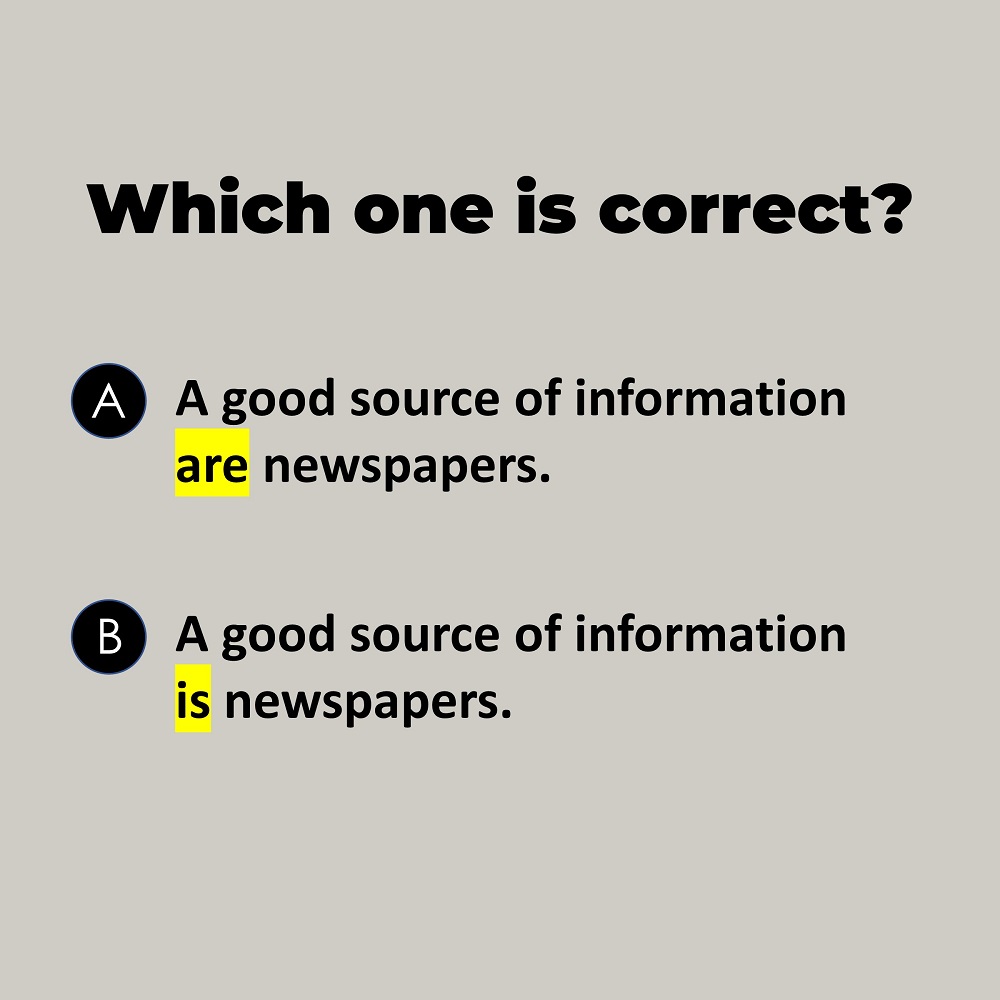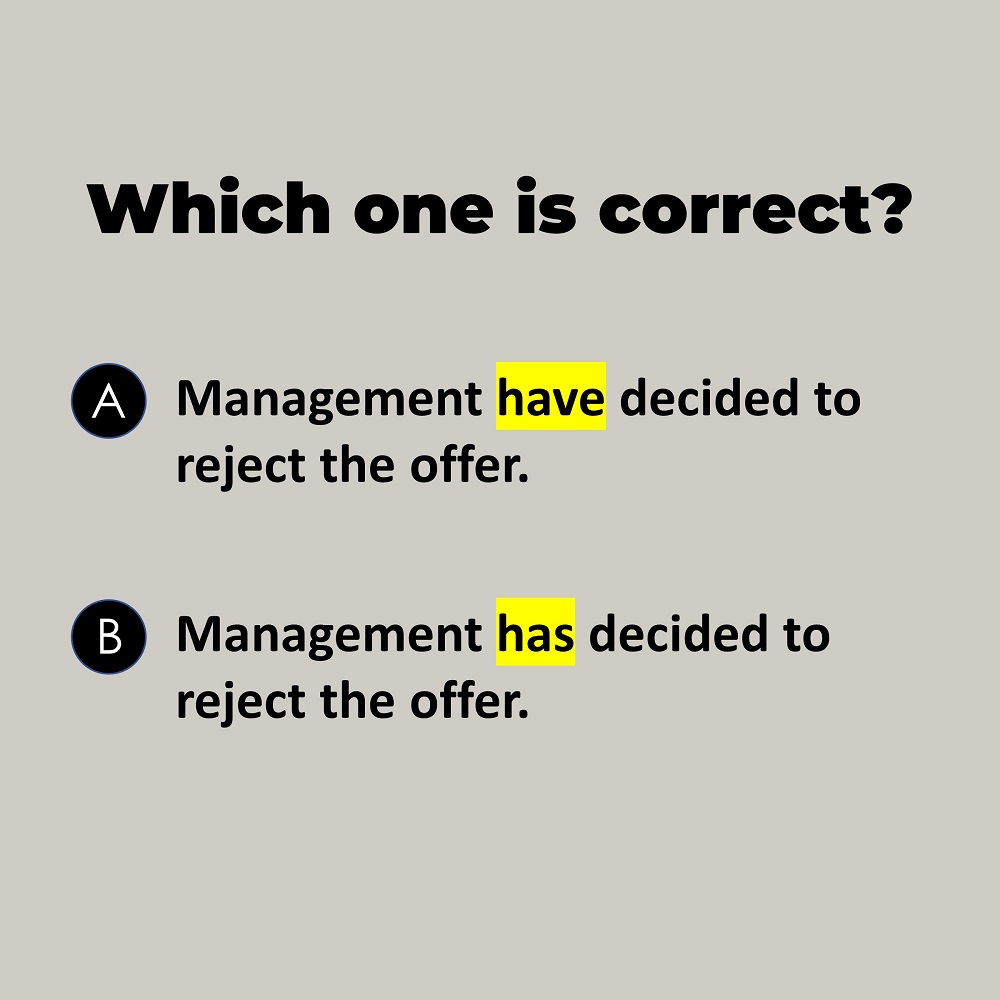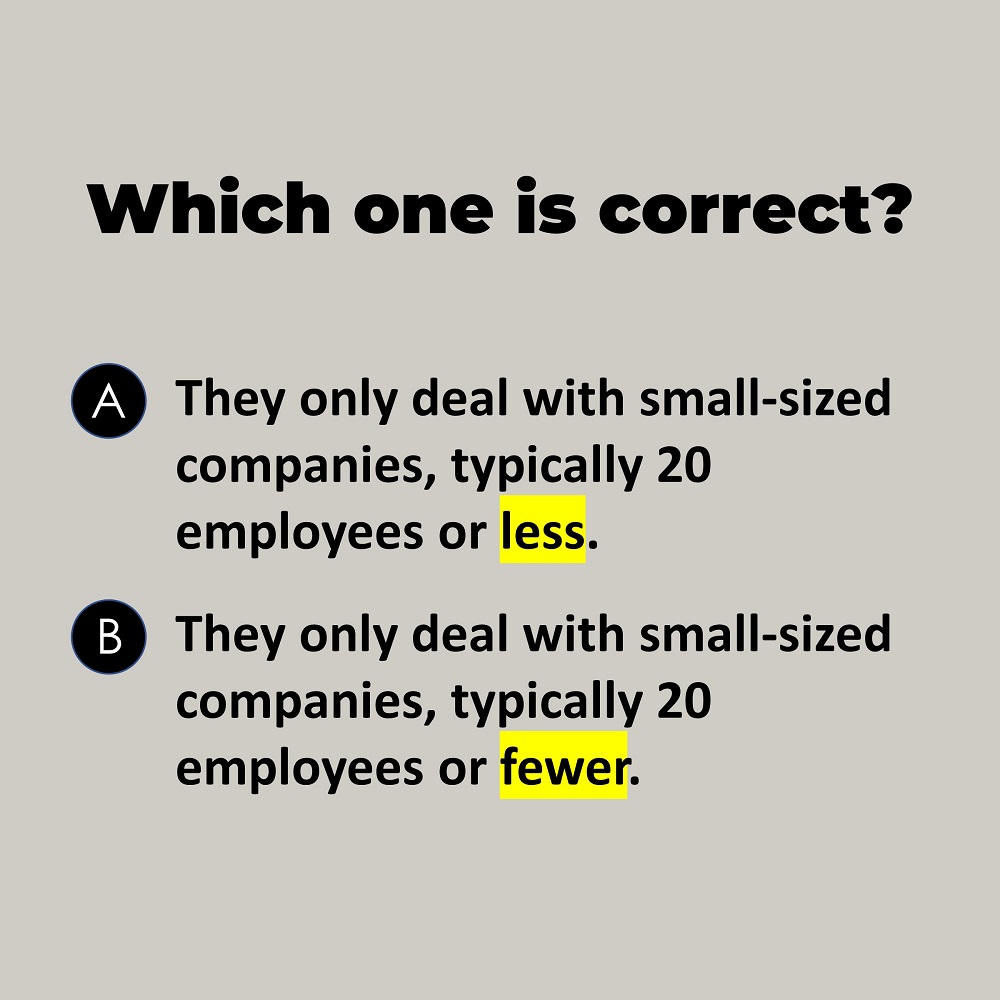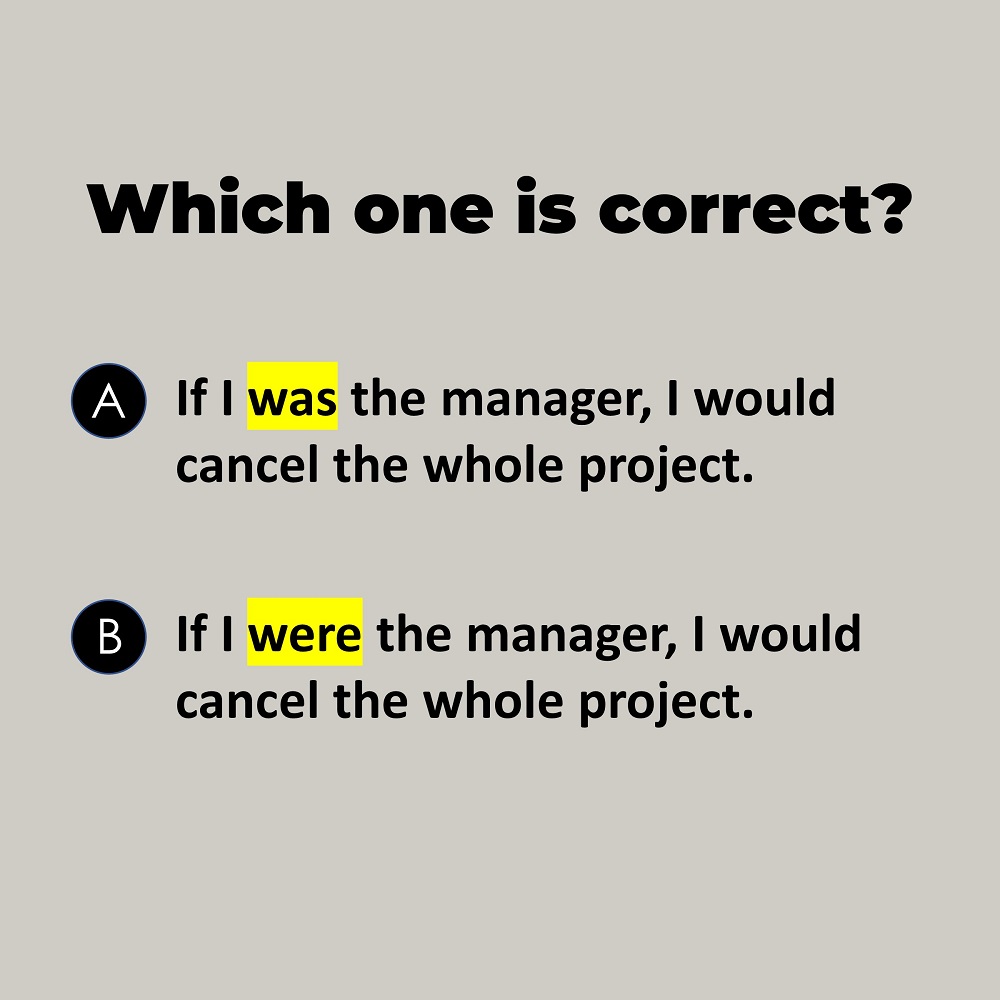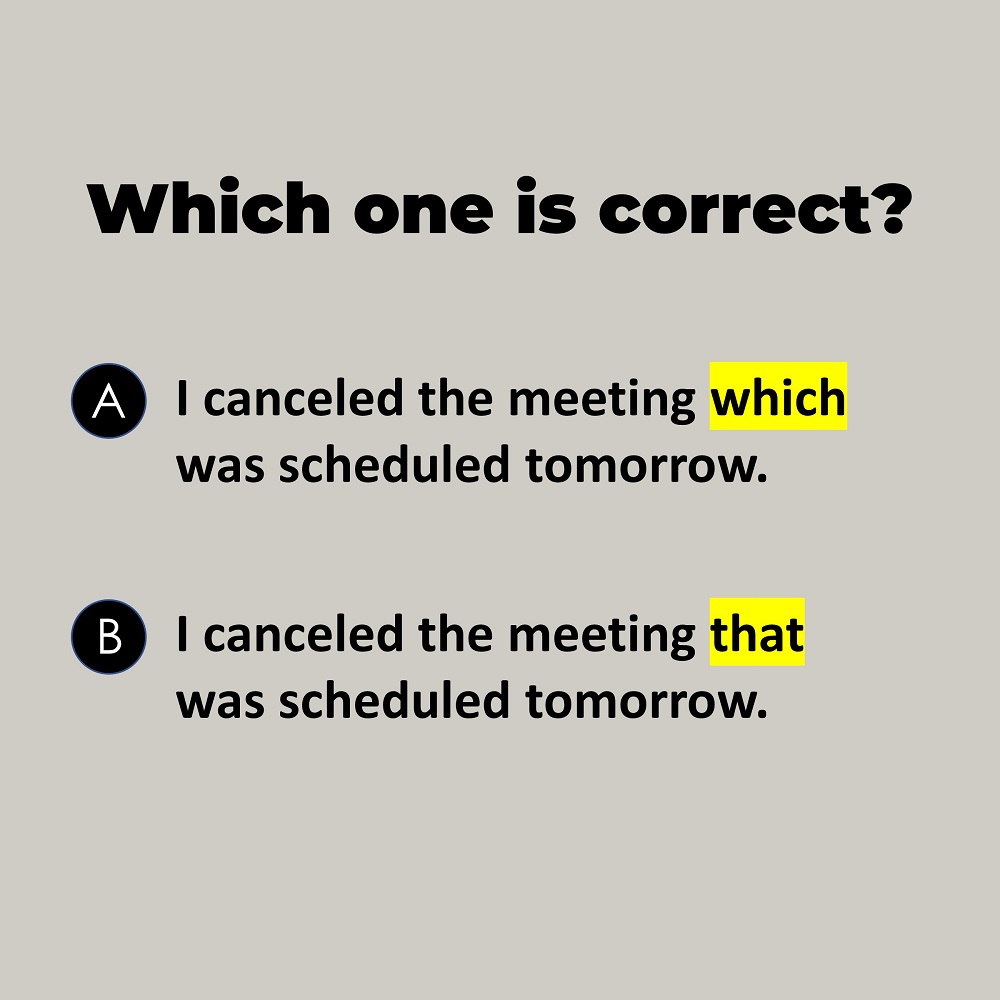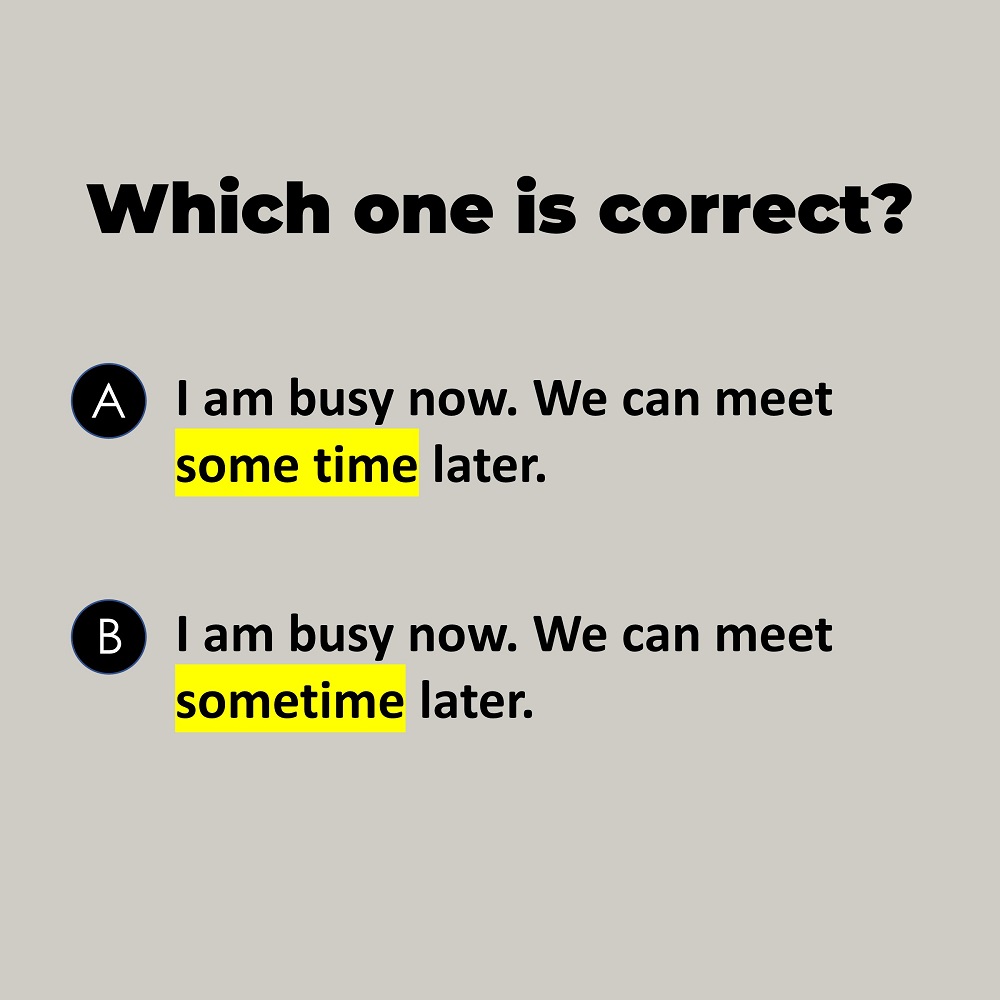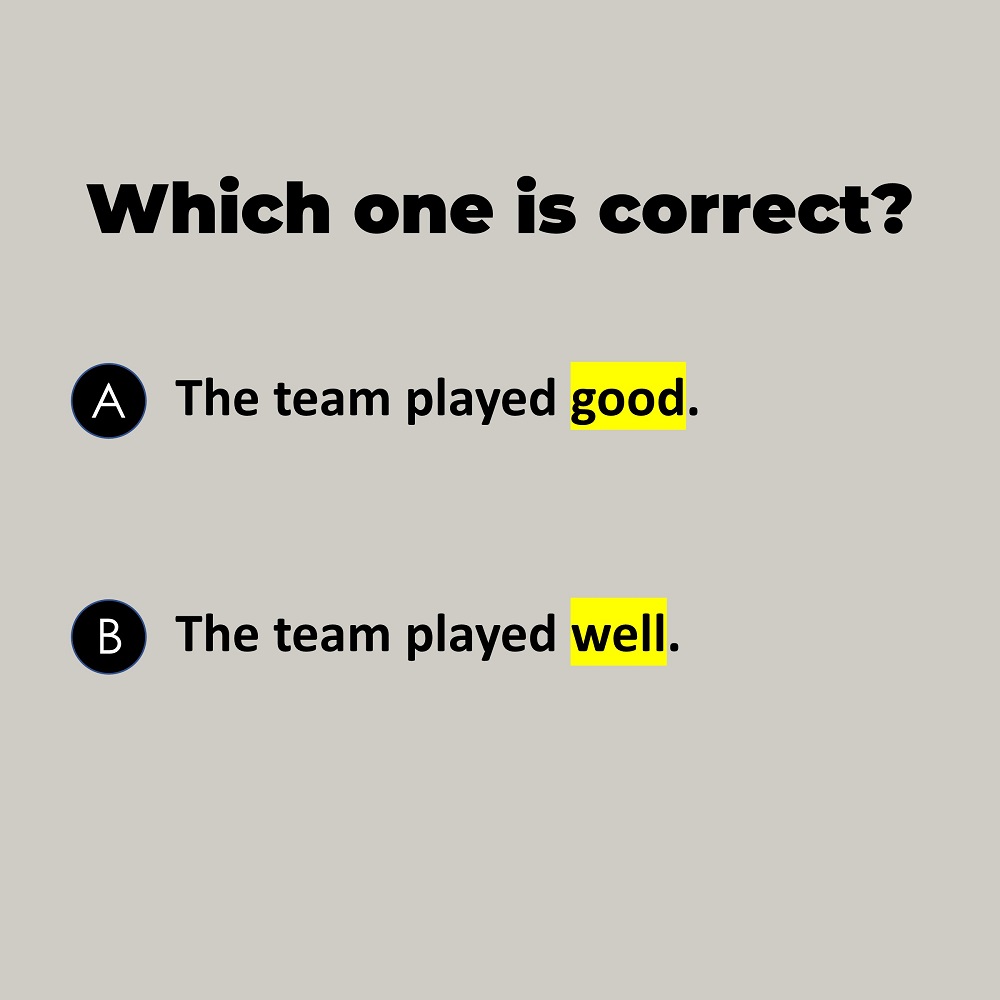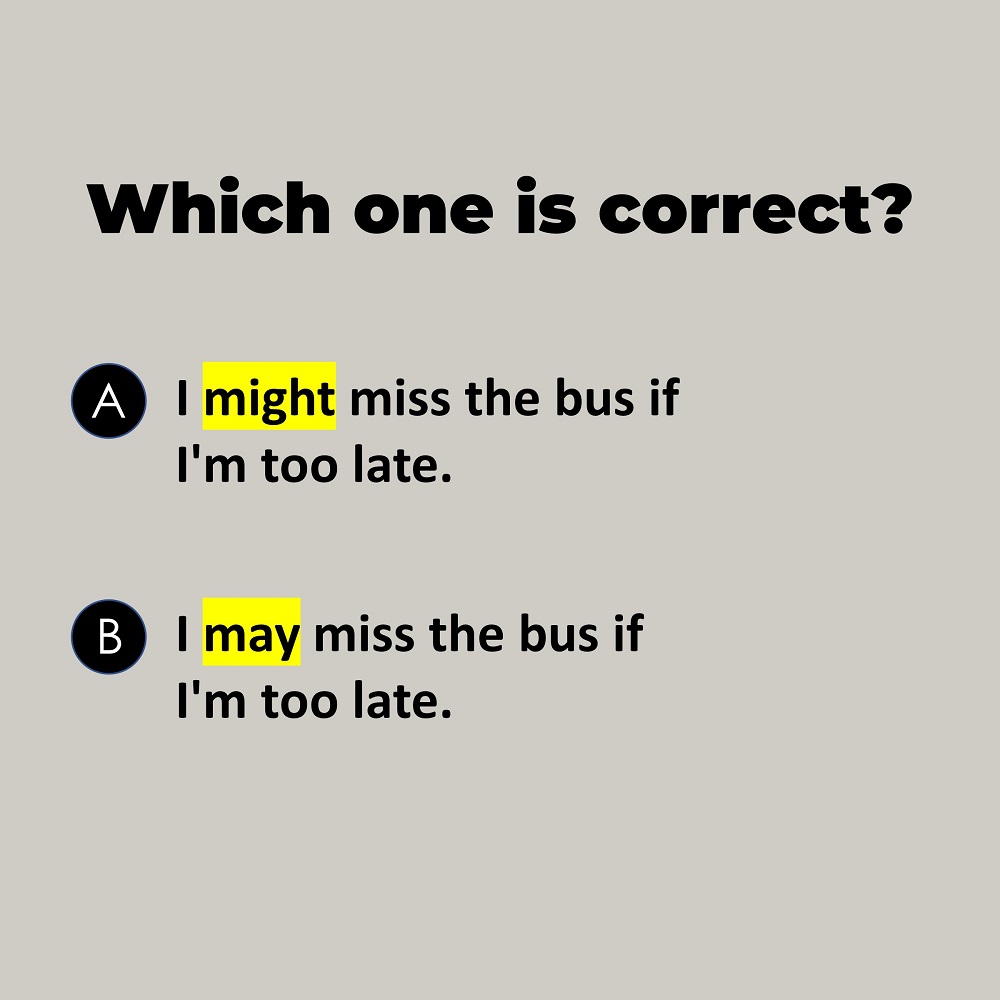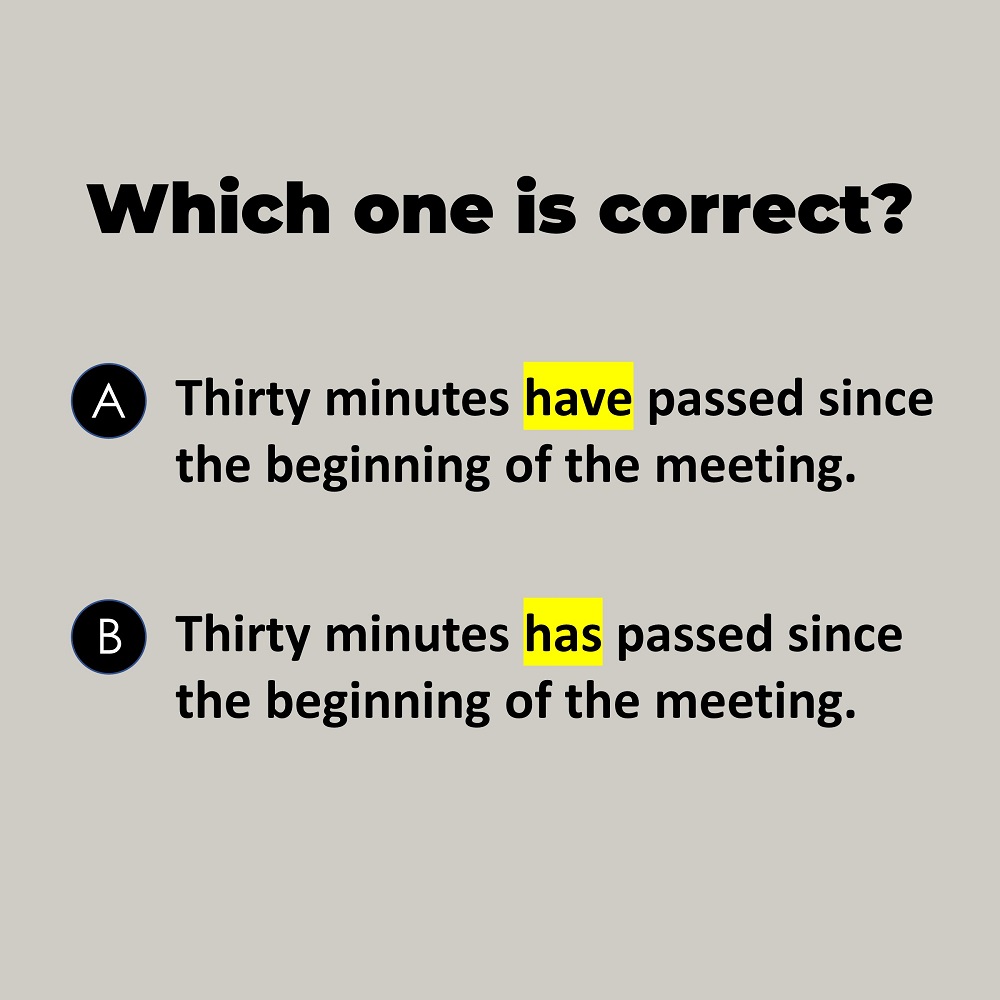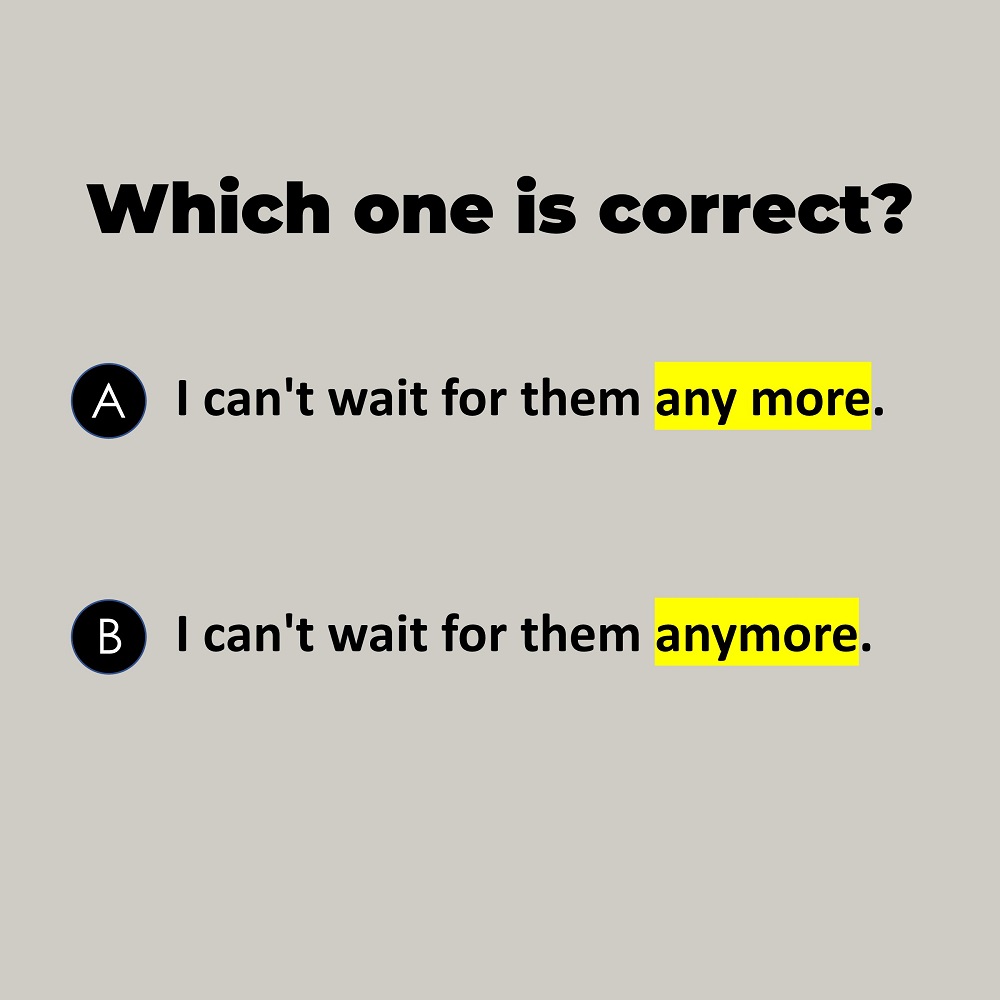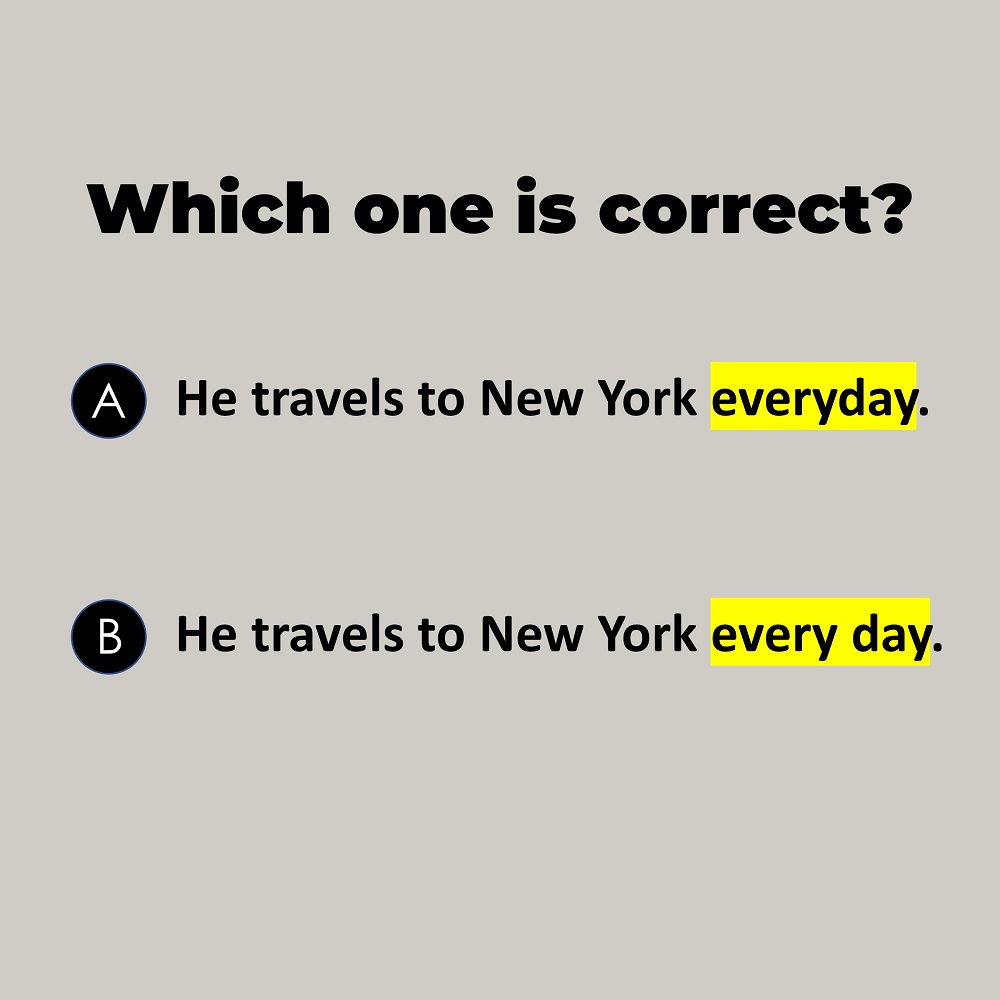34 Most common daily english mistakes 🤔

1. Don't start a sentence with a number
Incorrect: 10 people have resigned this year.
Correct: Ten people have resigned this year.
If you really want to start a sentence with a number, express the number in words.
2. Who is the subject?
Incorrect: A good source of information are newspapers.
Correct: A good source of information is newspapers.
Keep a close eye on the real subject.
In the example above, "source" is the subject not "newspapers".
3. Singular / Plural Words
Incorrect: Management have decided to reject the offer.
Correct: Management has decided to reject the offer.
Words such as "management" are treated as singular even though they represent more than one object.
4. "Less" and "Fewer"
Incorrect: They only deal with small sized companies, typically 20 employees or less.
Correct: They only deal with small sized companies, typically 20 employees or fewer.
Use "less" with uncountable quantities (time for example).
Use "fewer" with countable quantities (employees, apples etc...)
5. "More Than" and "Over"
Incorrect: I have over five years of experience.
Correct: I have more than five years of experience.
Use "more than" to refer to quantities.
"Over" means "above".
6. "Who" vs. "Whom"
Incorrect: Who did you speak to?
Correct: Whom did you speak to?
"Who" is for subjects and "Whom" is for objects.
7. "Were" and "Was"
Incorrect: If I was the manager, I would cancel the whole project.
Correct: If I were the manager, I would cancel the whole project.
Incorrect: John led the meeting as if he was the team leader.
Correct: John led the meeting as if he were the team leader.
When the "if" part of the sentence is not true, use "were" instead of "was".
8. Plural for Wishes
Incorrect: The manager demanded that she pays for the damage.
Correct: The manager demanded that she pay for the damage.
Incorrect: I wish he was able to give me a raise.
Correct: I wish he were able to give me a raise.
Use plural verbs not singular when expressing wishes and demands.
9. "That" vs. "Which"
Incorrect: I canceled the meeting which was scheduled tomorrow.
Correct: I canceled the meeting that was scheduled tomorrow.
Incorrect: I canceled tomorrow's meeting that wasn't important anyway.
Correct: I canceled tomorrow's meeting, which wasn't important anyway.
Use "that" when the remaining of the sentence is essential to the meaning.
Use "which" with a comma when the remaining of the sentence is not essential.
10. "Sometime" vs "Some time"
Incorrect: Call him for an appointment; I'm sure he has sometime for you.
Correct: Call him for an appointment; I'm sure he has some time for you.
Incorrect: I am busy now. We can meet some time later.
Correct: I am busy now. We can meet sometime later.
"Sometime" means a particular time (for example, tomorrow at 4 PM).
"Some time" means a period of time (from 10 AM to 4 PM).
11. "be" vs. "is"
Incorrect: The supplier demanded that the payment is complete.
Correct: The supplier demanded that the payment be complete.
Sounds odd? Put the word "should" and things will suddenly make sense.
"should be complete" sounds normal, "should is complete" sounds odd.
12. Verb Tense Agreement
Incorrect: He called me yesterday and he agrees to the contract terms.
Correct: He called me yesterday and he agreed to the contract terms.
Verbs within a sentence must be of the same tense unless there a reason for it.
13. "Good" vs. "Well"
Incorrect: The team played good.
Correct: The team played well.
"Good" describes things. "Well" describes actions (played).
14. "May" vs "Might"
Incorrect: I might miss the bus if I'm too late.
Correct: I may miss the bus if I'm too late.
Incorrect: I may miss the bus if I stay here a little more.
Correct: I might miss the bus if I stay here a little more.
Use "may" when things are likely to happen.
Use "might" when things are unlikely to happen.
15. Quantities are singular
Incorrect: Thirty minutes have passed since the beginning of the meeting.
Correct: Thirty minutes has passed since the beginning of the meeting.
Incorrect: Ten dollars are all that I have.
Correct: Ten dollars is all that I have.
Quantities are singular: thirty minutes, twelve hours, hundred dollars.
16. "Any more" vs. "Anymore"
Incorrect: I can't wait for them any more.
Correct: I can't wait for them anymore.
Incorrect: Are there anymore vacancies left in your department?
Correct: Are there any more vacancies left in your department?
"Any more" means "additionally". "Anymore" means "any longer".
17. "Anyway" vs. "Any way"
Incorrect: We can start with this project anyway you want.
Correct: We can start with this project any way you want.
Incorrect: They are going to outsource it any way.
Correct: They are going to outsource it anyway.
"Any way" means "any of the many ways". "Anyway" means "whatever happens".
18. Question Marks
Incorrect: She asked me if I had taken any accounting courses?
Correct: She asked me if I had taken any accounting courses.
Incorrect: Could you please send me that report?
Correct: Could you please send me that report.
Use a question mark only with direct questions.
19. "It's" vs. ""Its"
Incorrect: I have sent you the report and it's summary.
Correct: I have sent you the report and its summary.
Incorrect: I postponed the meeting. Its way too late.
Correct: I postponed the meeting. It's way too late.
"It's" means "It is". "Its" means "belongs to it".
20. "Everyday" vs. "Every day"
Incorrect: He travels to New York everyday.
Correct: He travels to New York every day.
Incorrect: Signing memos is part of his every day routine.
Correct: Signing memos is part of his everyday routine.
"Everyday" is an adjective that comes before a noun.
21. Mix of Subjects
Incorrect: Not only my colleagues but also my manager thinks that I should take a break.
Correct: Not only my colleagues but also my manager think that I should take a break.
Even Better: Not only my manager but also my colleagues think that I should take a break.
If there is a mixture of both plural and singular subjects, make the verb plural.
Better to put the plural subject next to the verb.
22. "I" vs. "Me"
Incorrect: He invited John and I to the meeting.
Correct: He invited John and me to the meeting.
Incorrect: John and me will attend the meeting.
Correct: John and I will attend the meeting.
Incorrect: Me and John will attend the meeting.
Correct: John and I will attend the meeting.
Incorrect: Between you and I, I think he is doing a terrible job.
Correct: Between you and me, I think he is doing a terrible job.
Incorrect: Stacy and her will write the report.
Correct: Stacy and she will write the report.
"I" plays the role of the subject. "Me" plays the role of the object.
Same applies for other pronouns (her/she, his/he, etc...)
23. "Myself" and "I"
Incorrect: John and myself will tell him the result.
Correct: John and I will tell him the result.
Correct: I will write the report then John and myself will tell him the result.
Use "myself" only when "I" appears in the sentence first.
24. "All together" vs. "Altogether"
Incorrect: We went altogether to the conference.
Correct: We went all together to the conference.
Incorrect: The project all together was ruined.
Correct: The project altogether was ruined.
"All together" means all at the same time or place.
"Altogether" means "as a whole" or "as one unit".
25. "Maybe" vs. "May be"
Incorrect: He maybe coming late. You will have to wait.
Correct: He may be coming late. You will have to wait.
Incorrect: May be I will invite everyone.
Correct: Maybe I will invite everyone.
"Maybe" means "possibly". "May be" is the verb "be" preceded by "may".
26. "Therefore" and "However"
Incorrect: I am not happy with my position, therefore I am going to resign.
Correct: I am not happy with my position; therefore, I am going to resign.
Incorrect: I am not happy with my position, however the pay is really good.
Correct: I am not happy with my position; however, the pay is really good.
27. Single quotes and double quotes
Incorrect: I requested for an 'up-sized' delivery.
Correct: I requested for an "up-sized" delivery.
Correct: John told me: "I requested for an 'up-sized' delivery."
Avoid using quotes around words. Use double quotes to enclose terms. Use single quotes only inside double quotes.
28. "Who's" vs. "Whose"
Incorrect: That is our new partner who's contribution will be integral to our success.
Correct: That is our new partner whose contribution will be integral to our success.
Incorrect: That is our new partner whose a major contributor in our next project.
Correct: That is our new partner who's a major contributor in our next project.
"Who's" means "Who is". "Whose" means "belongs to".
29. "In addition" and "Along with"
Incorrect: John in addition to Stacy have resigned.
Correct: John in addition to Stacy has resigned.
Incorrect: John together with Stacy have resigned.
Correct: John together with Stacy has resigned.
Incorrect: John along with Stacy have resigned.
Correct: John along with Stacy has resigned.
Incorrect: John as well as Stacy have resigned.
Correct: John as well as Stacy has resigned.
The subject in these phrases is only John. Stacy is a deviation phrase. It just adds extra information but is not part of the subject.
30. "Past tense" vs. "Past perfect" vs. "Present perfect"
Incorrect: I took a taxi before they arrived.
Correct: I had taken a taxi before they arrived.
Weak: I had travelled to New York last year.
Strong: I travelled to New York last year.
Incorrect: I rented this apartment last month.
Correct: I have rented this apartment last month.
Use the past tense ("travelled") for actions that happened in the past.
Use the past perfect ("had taken") for actions that happened in the past before something else.
Use the present perfect ("have rented") for actions that happened in the past and continue till now.
31. "Gone" vs. "Went"
Incorrect: They had went to the meeting before I arrived.
Correct: They had gone to the meeting before I arrived.
Incorrect: They have went to the meeting and I am still waiting got them to come back.
Correct: They have gone to the meeting and I am still waiting got them to come back.
Use "gone" not "went" when dealing with present and past perfect.
32. The present and past perfect
Incorrect: They had came here before you.
Correct: They had come here before you.
Incorrect: They have came here many times before.
Correct: They have come here many times before.
In the present and past perfect use "come" not "came".
33. Past Perfect
Incorrect: I had arrived to the meeting but it already ended.
Correct: I arrived to the meeting but it had already ended.
What happened first? You arriving to the meeting or the meeting ending first?
The action that happened first takes the past perfect even it occurs second in the sentence.
34. "Lie" vs. "Lie" vs. "Lay"
Incorrect: I like to lay down for a rest after every meeting.
Correct: I like to lie down for a rest after every meeting.
Incorrect: I lied down for rest yesterday.
Correct: I lay down for a rest yesterday.
The below table explains the differences between lay and lie.
| lie | lie | lay | |
| to not tell the truth | to rest | to place | |
| present | lie | lie | lay |
| past | lied | lay | laid |
| present principle | lied | lying | laid |
| past principle | lied | lain | laid |
